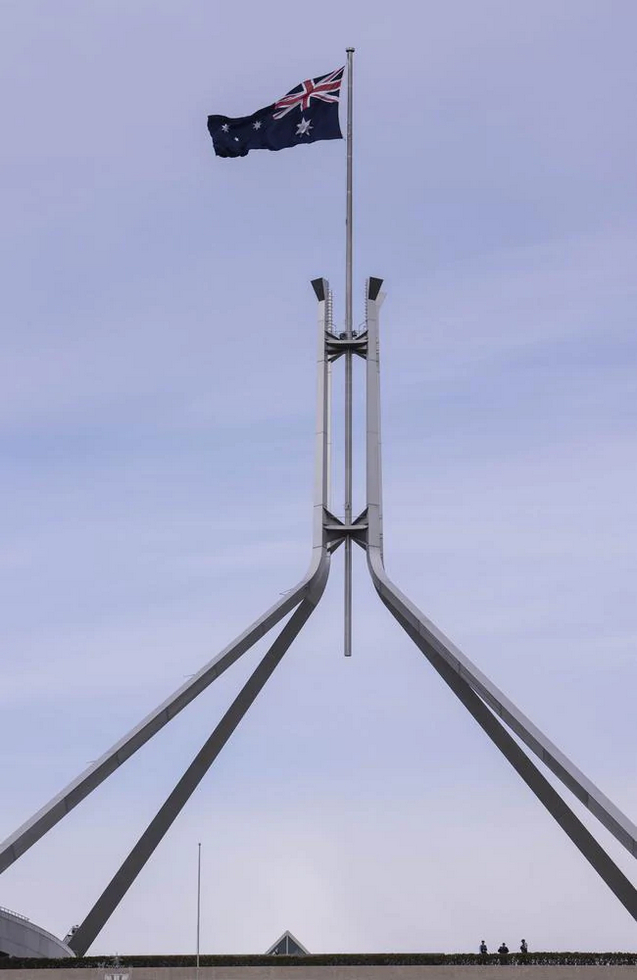An independent MP’s proposal for drastic action on climate change has received the unexpected backing of a powerful lobby group.
A new report from CSIRO and BOM has warned us about the worsening effects of climate change.
Public hearings into climate change legislation proposed by independent MP Zali Steggall have begun in Canberra today, backed by a business group representing chief executives from the mining, energy and manufacturing sectors.
The private members’ bills, released in February last year but introduced in parliament in November, include a long-term target of net-zero emissions by 2050.
Ms Steggall also wants to see an independent Climate Change Commission established.
With hearings on Friday and on Monday, February 1, the House of Representatives Standing Committee on the Environment and Energy has promised an independent review of the proposed legislation.
“We have recently managed inquiries into nuclear energy, bushfires, Scope 3 emissions and feral cats, and so the Committee is well placed to now deliberate on the proposed climate change bills,” chair Ted O’Brien said in a statement.
“As a Committee, we’ll do what we always do,” he said. “We won’t draw any conclusions prematurely, but rather assess the information with dispassionate independence.”
 |
| Independent Member for Warringah Zali Steggall. Picture: Mick Tsikas/AAP Source: AAP |
Another notable submission is a three-page document from the Business Council of Australia, which has a membership of “CEOs of Australia’s top companies” such as AGL, BHP, BlueScope, Fortescue Metals Group, Origin Energy and Rio Tinto.
Members hail from sectors including mining, retail, manufacturing, infrastructure, information technology, financial services and banking, energy, professional services, transport, and telecommunications.
Signed by BCA chief executive Jennifer Westacott, the submission states the bills ensure environmental sustainability “but also the need to manage the economic and social impacts”.
“The proposed legislation adopts a science-based, risk-management approach to addressing climate change … which is aligned with how businesses and their shareholders, increasingly, are responding to climate-related risks,” Ms Westacott writes.
“Having a very clear set of government policy ‘goalposts’ would enable company directors to focus their resources and efforts more efficiently with respect to climate-related transition risks.”
Ms Westacott said investors’ needs are “twofold”, being “a clearly articulated policy destination; and a policy pathway for achieving this destination”.
She said the climate policy response would benefit the community by providing opportunities for new jobs, particularly in the wake of the COVID-19 pandemic-induced recession.
It raised six aspects requiring “careful interpretation” to be consistent with “an efficient, least-cost climate policy response for Australia”, including that “sectoral policies” should not prevent “emissions mitigation and adaptation efforts being optimised across sectors”.
 |
| The parliamentary inquiry public hearings are being held on Friday
and Monday. Picture: NCA NewsWire/Gary Ramage Source: News Corp Australia |
“The inquiry’s two public hearings offer a significant opportunity for the public to hear from the private and public sectors on the impact of climate change and how we tackle it and make a difference,” she said.
“As we have seen in the UK, climate change policy can be bipartisan.
“The world is heading to net zero by 2050 led by US President Joe Biden. It’s time Prime Minister Scott Morrison sets Australia on the right path.
“Dragging this out and delaying significant emissions reduction will only cost more and increase risks to our communities.”
 |
| Prime Minister Scott Morrison. Picture: NCA NewsWire/Martin Ollman Source: Supplied |
“It is about whether you can produce hydrogen at the right cost, it is about whether (carbon capture and storage) can be done at the right cost, it is whether we can produce low emissions steel and aluminium at the right cost,” Mr Morrison said.
“That is how you actually get to net zero. You don’t get there by just having some commitment.
“That is where the discussion has to go and I think the Biden administration provides an opportunity to really pursue that with some enthusiasm.”
Late last year, Energy Minister Angus Taylor told ABC Radio a “net zero across-the-board 2050 target” would mean a 2030 target around 43 per cent.
“That will destroy jobs, that will require taxes, that will impose costs on Australian energy consumers and raise the price of electricity in this country,” he said.
Australia is party to the Paris Agreement, aiming to keep global warming to well below 2C.
Ms Steggall won the blue-ribbon Sydney seat of Warringah in 2019, held by former prime minister Tony Abbott since 1994.
Her proposed legislation is backed by the Greens and several crossbenchers including Rebekha Sharkie, Andrew Wilkie and Helen Haines.
Links
- Australian faces major climate change reality check
- What 2C of warming will look like in Australia
- Zali Steggall's climate bill gets broad backing from industry groups and investors
- Business Council of Australia backs Zali Steggall's climate change bill for 2050 net zero target
- Net zero, saving koalas and forest wars: the crucial environment battles looming in Australia
- Spinning emissions: Australia's climate projections are not what they seem
- Australia urged to overhaul environment laws and reverse 'decline of our iconic places'
- ‘Breathtaking’: what Joe Biden’s sweeping climate plan means for Scott Morrison
- Coalition quietly adds fossil fuel industry leaders to emissions reduction panel
- Morrison’s tech roadmap flags more investment in carbon capture and storage
- UN climate summit president thanks Australian states – but not Morrison government – for backing net zero

No comments :
Post a Comment